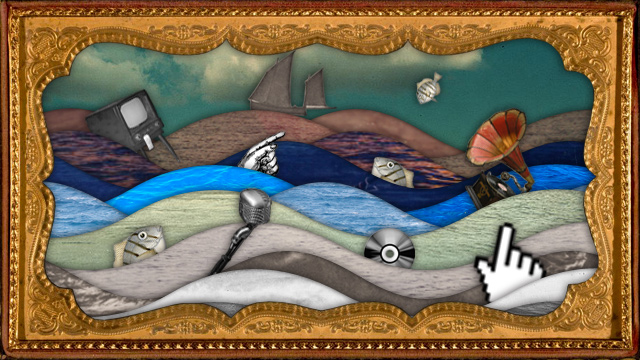Lack of data and methodological challenges for the development of studies of music industry
DOI:
https://doi.org/10.15448/1980-3729.2013.1.13129Keywords:
Communication, Music industry, MethodologyAbstract
Balance of the methodological difficulties faced by researchers who have been working with the music industry in the current context marked by crisis and restructuring of this sector of cultural production. We examine here, not only the implications of the lack of data and indicators of cultural music industry for the development of these studies, but also underline the importance of renewing research protocols and developing researches that are able to generate primary data. Thereby aiming to account for the complexity of the dynamics of the music industry in the 21st century.Downloads
References
ALBORNOZ, Luis A.; GALLEGO, Juan Ignacio. Setor da música…independente? Apontamentos sobre a trama empresarial española. In: HERSCHMANN, Micael (org.). Nas bordas e fora do mainstream. São Paulo: Estação das Letras e das Cores, 2011.
ALFARO, Santiago. Economía y cultura de la música andina. Tese (Doutorado em Sociologia) - Departamento de Sociologia, PUC-Peru, 2009.
HERSCHMANN, Micael (Org.). Nas bordas e fora do mainstream. São Paulo: Estação das Letras e das Cores, 2011.
______. A indústria da música como laboratório. Observatório. São Paulo: Itaú Cultural, n. 9, p. 21-30, 2010a.
______. Indústria da música em transição. São Paulo: Estação das Letras e das Cores, 2010b.
______. Lapa: cidade da música. Rio de Janeiro: Mauad X, 2007.
International Federation of the Phonographic Industry (IFPI). Global Recording Industry in numbers – 2010. Londres: IFPI Market Publication, 2011.
JENKINS, Henry. Cultura da convergência. São Paulo: Aleph, 2008.
______. Fans, bloggers and gamers. New York: New York University Press, 2006.
LEMOS, Ronaldo; CASTRO, Oona. Tecnobrega: o Pará reinventando o negócio da música. Rio de Janeiro: Aeroplano, 2008.
LONDON SCHOOL OF ECONOMICS. Music Sales. 2011. Disponível em: www2.lse.ac.uk/home.aspx. Acesso em: 12 jun. 2012.
MAFESOLI, Michel. O ritmo da vida. Rio de Janeiro: Record, 2007.
______. O tempo das tribos. Rio de Janeiro: Forense-Universitária, 1987.
OCHOA, Ana M. G. Músicas Locales en Tiempos de Globalización. Buenos Aires: Norma, 2001.
POLLSTAR. New business of music. 2010. Disponível em: www.pollstar.com. Acesso em: 2 ago. 2010.
SÁ, Simone Pereira de. Cenas musicais, sensibilidades, afetos e cidades. In: GOMES, Itania; JANOTTI JUNIOR, Jeder (Orgs.). Comunicação e Estudos Culturais. Salvador: EDUFBA, 2011.
SÁ, Simone Pereira; MIRANDA, Gabriela. Aspectos da economia musical popular no Brasil: o circuito do funk carioca. In: HERSCHMANN, Micael. (org.). Nas bordas e fora do mainstream. São Paulo: Editora Estação das Letras e das Cores, 2011.
STRAW, Will. Scenes and sensibilities. E-Compós, n. 6, 2006. Disponível em: www.compos.org.br/ecompos/adm/documentos/ecompos06_agosto2006_willstraw.pdf. Acesso em: 11 jun. 2012.
SUNKEL, Guillermo (Coord.). El consumo cultural en América Latina. Santafé de Bogotá: Convenio Andres Bello, 1999.
TROTTA, Felipe. O samba e suas fronteiras. Rio de Janeiro: UFRJ, 2011.
YÚDICE, George. A conveniência da cultura. Belo Horizonte: UFMG, 2004.
______. Apontamentos sobre alguns dos novos negócios da música. In: HERSCHMANN, Micael (Org.). Nas bordas e fora do mainstream. São Paulo: Estação das Letras e das Cores, 2011.
______. La transformación y diversificación de la industria de la música. In: BUSTAMANTE, Enrique (Org.). La cooperación cultura-comunicación en iberoamérica. Madrid: Fundación Alternativas, 2007.
Downloads
Published
How to Cite
Issue
Section
License
Copyright
The submission of originals to Revista Famecos implies the transfer by the authors of the right for publication. Authors retain copyright and grant the journal right of first publication. If the authors wish to include the same data into another publication, they must cite Revista Famecos as the site of original publication.
Creative Commons License
Except where otherwise specified, material published in this journal is licensed under a Creative Commons Attribution 4.0 International license, which allows unrestricted use, distribution and reproduction in any medium, provided the original publication is correctly cited.






